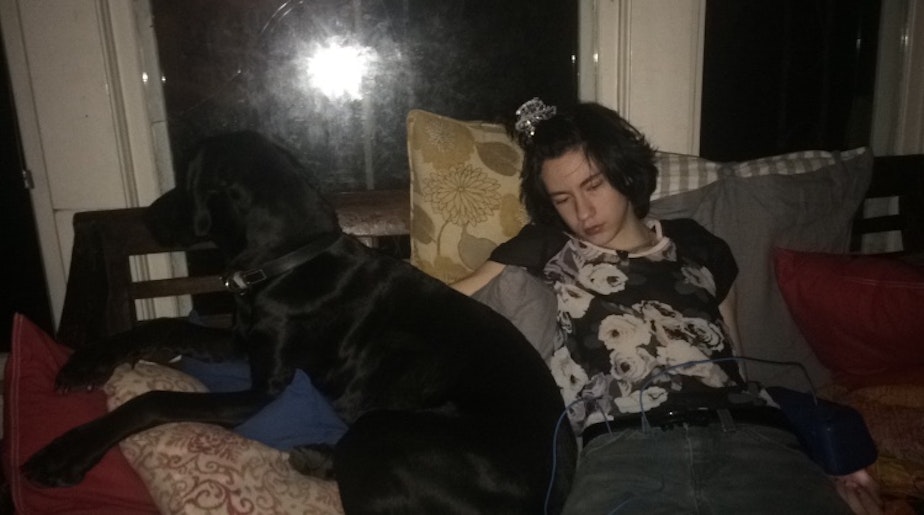Growing up on opioids: How music set this Seattle teen straight

My friend Coltrane Fisher is a 17-year-old musician and quite the character. As kids, we bonded over our similar love for music but drifted apart at the end of middle school as Coltrane started experimenting with hard drugs.
By the beginning of high school, Coltrane went to rehab for opioids, among other drugs including alcohol.
Coltrane and I didn’t really see each other at this point in time. Despite having returned from rehab, he continued to use for another year.
“I wanted to stop for months,” Coltrane says. "I just couldn’t do it. I’d wake up everyday and promise myself I wouldn’t get high, and by noon, I was blacked out.”
Coltrane was enrolled in a school for kids recovering from addiction, and he definitely was not recovering. He was reluctant to listen to his parents and the adults in his school, but he was losing his last chance. Things weren’t working the Coltrane way.
By cooperating with the people in his program at school and attending Alcoholics Anonymous meetings, he met different artistic people who reinvigorated the love for music that he had lost.
“I had this whole super emo thing where nobody gets it, nobody understands,” Coltrane says. “Then all these people who definitely did get it and their lives weren’t shitty and they were happy and they were doing really cool shit were like, ‘Hey, all you have to do is listen to me and go to this meeting once a day, and if you feel like getting high, just pick up the phone and call somebody.’ And I did, and I still do that, even to this day.”
Sponsored
Instead of hanging out with people who only knew him at the surface level of getting high, Coltrane now had people who inspired him to do more.
This started a shift in Coltrane’s life. He could actually write and remember things. It was so different from the hazy, drugged out days of just a few months before.
Coltrane has been going to AA for almost two years now, but that doesn’t mean everything is behind him. Drugs still have a huge impact on him.
“Addiction changes your brain. There will always be a part of my brain that craves cocaine. I know how miserable I was when I was doing those drugs. But I will see someone do it, and my first thought will be, I should go ask them for some. I know alcohol played a major part in ruining my life, but I’ll still walk into stores and see a thing of Jack and my first thought will be, I should rack that," he says.
What does Coltrane have planned for the future? Will he become a crazy rock star?
Sponsored
Well, he has always kind of been one, but deep down, he’s just like any other 17-year-old. He’s not really sure, and he has a lot of different ideas. But music will always be something that he carries with him.
Whatever he chooses to do and whatever problems that he faces in the future, I know that he can overcome them.
Countless other people get addicted around the same age and get trapped for the rest of their lives.
This kid turned it around before he turned 18, and I have a crazy amount of respect for him.
All audio for this story was collected following CDC safety guidelines during Covid-19.
Sponsored
This story was created in KUOW's RadioActive Online Radio Journalism Workshop for 15- to 18-year-olds, with production support from Kyle Norris. Edited by Mary Heisey.
Find RadioActive on Facebook, Twitter, TikTok and Instagram, and on the RadioActive podcast.
Support for KUOW's RadioActive comes from the Bill & Melinda Gates Foundation Discovery Center.



